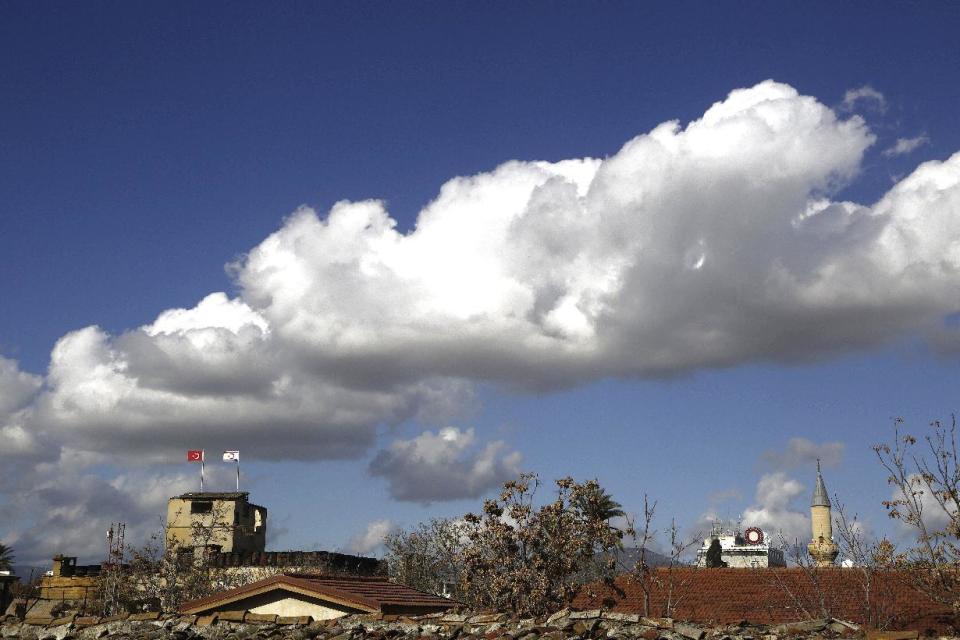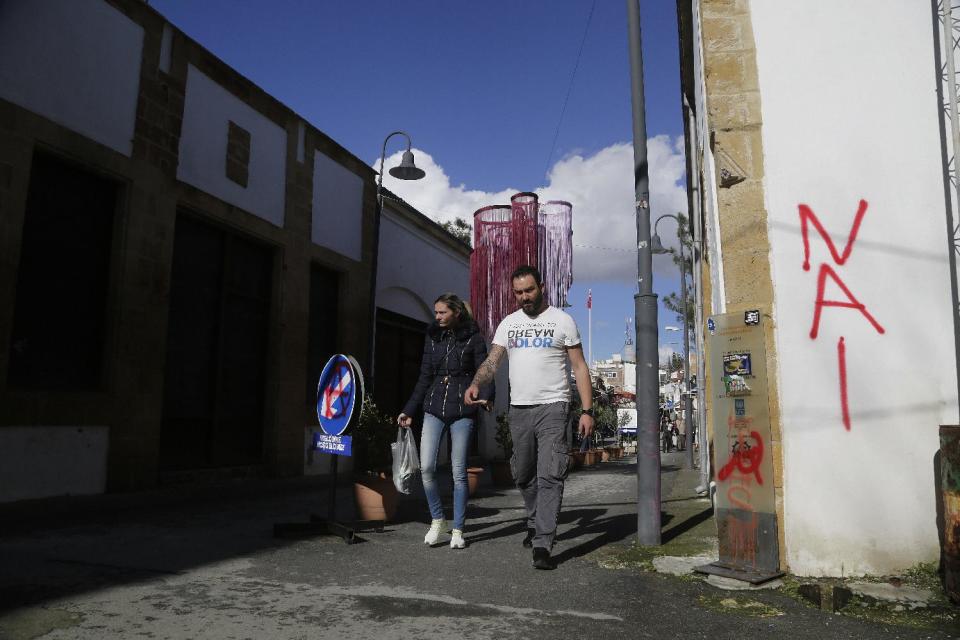Divided Cyprus' leaders conclude 'historic' map exchange
GENEVA (AP) — The rival leaders of ethnically divided Cyprus exchanged maps Wednesday outlining the zones the island's Greek and Turkish communities would control in a hoped-for federation, the first time such a swap has occurred after decades of reunification talks.
The maps now have been locked in a United Nations vault due to the sensitive nature of the proposed boundaries, which indicate how many people displaced by the nation's division may be eligible to reclaim lost homes and property relatively quickly.
Discussions to thrash out a single, compromise map will be scheduled for a later date, government spokesman Nicos Christodoulides said.
He said it would be up to Greek Cypriot President Nicos Anasastaides and Turkish Cypriot leader Mustafa Akinci to decide when those negotiations take place.
"This is not the end of the road," Christodoulides told reporters. "This is the beginning of negotiations on a very important chapter of the Cyprus problem."
Turkish Cypriot spokesman Baris Burcu said both maps conformed to already agreed upon criteria for how much of the island's land would go to the Turkish Cypriot zone — between 28.2 and 29.2 percent.
In the meantime, the talks will move in an international direction on Thursday. The foreign ministers of Cyprus' so-called guarantors — Turkey, Greece and former colonial power Britain — are set to join a discussion on the pivotal issue of post-unification security arrangements.
Anastasiades and Akinci have been meeting in Geneva since Monday to discuss a number of outstanding issues that could restore unity to the island split by ethnic divisions for almost 43 years.
Turkey invaded Cyprus in 1974 in response to a coup aiming to unite the island with Greece. Many residents were stripped of homes and property when Cyprus divided into an official Greek Cypriot south and a breakaway Turkish north where Turkey has more than 35,000 troops stationed.
Top leaders from the European Union, which counts Cyprus as a member, are also expected to join the talks Thursday that will concentrate on how to ensure and who will oversee post-settlement security.
European Commission President Jean-Claude Juncker told reporters on Wednesday that the talks were "the very last chance to see the island being recomposed in a normal way."
However, United Nations envoy Espen Barth Eide, who is facilitating the talks, sought to downplay expectations. Eide said that the process remains on track to overcome major obstacles.
He pointed to "historic" advances happening at the summit, such as the exchange of boundary maps and the participation of the three guarantor powers at such a high-level.
But a deal likely won't emerge immediately from the summit since important technical details need to be sorted out before Cyprus' Greek and Turkish communities can vote on an overall agreement, Eide said.
"So don't expect that we will be walking home from Geneva — or rather flying — to Cyprus with a comprehensive settlement in our hands," Eides told reporters. "But we will go home with a sense that it is coming."
___
Hadjicostis reported from Nicosia, Cyprus. Raf Casert contributed from Brussels, Belgium.

 Yahoo News
Yahoo News 








